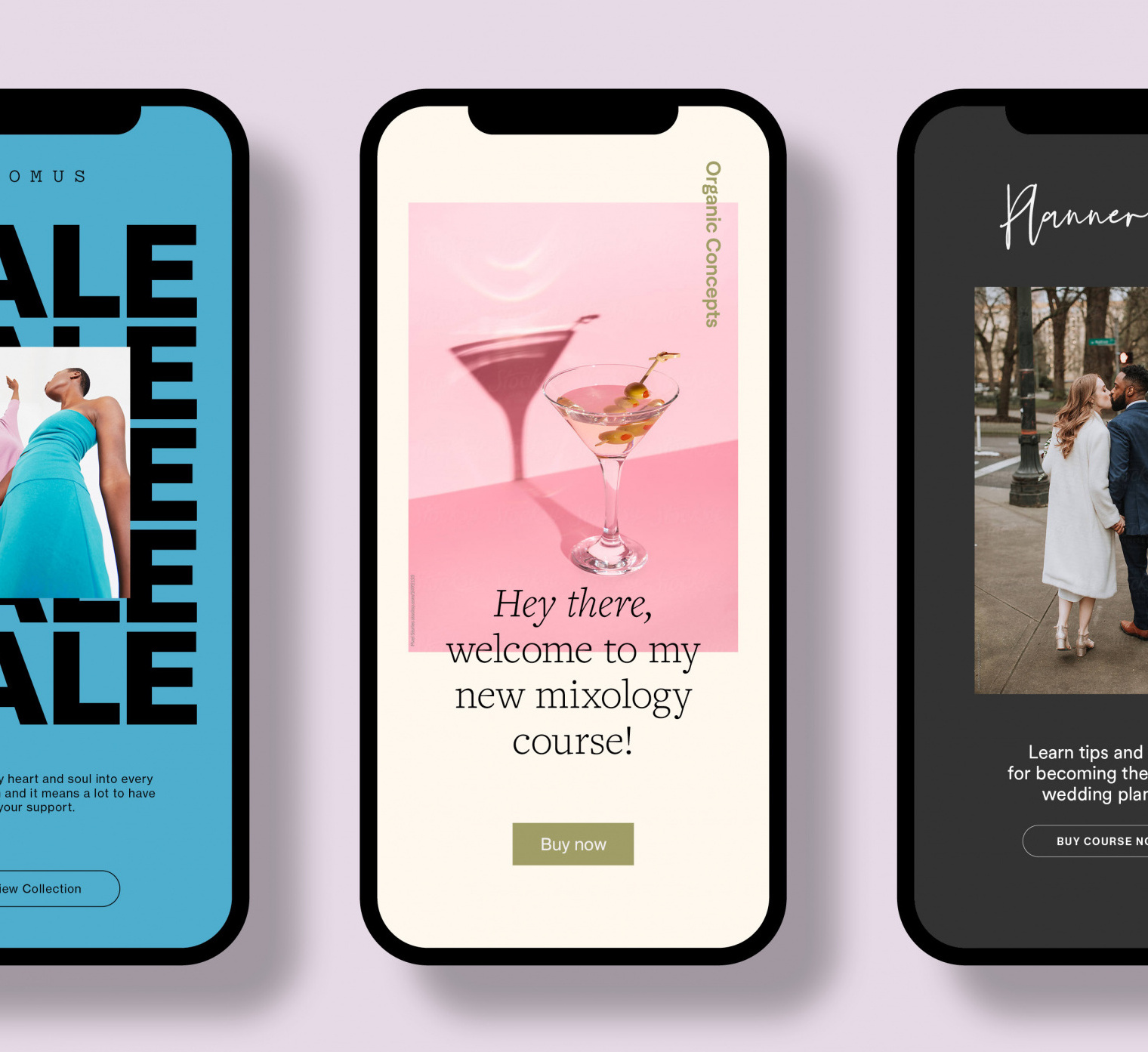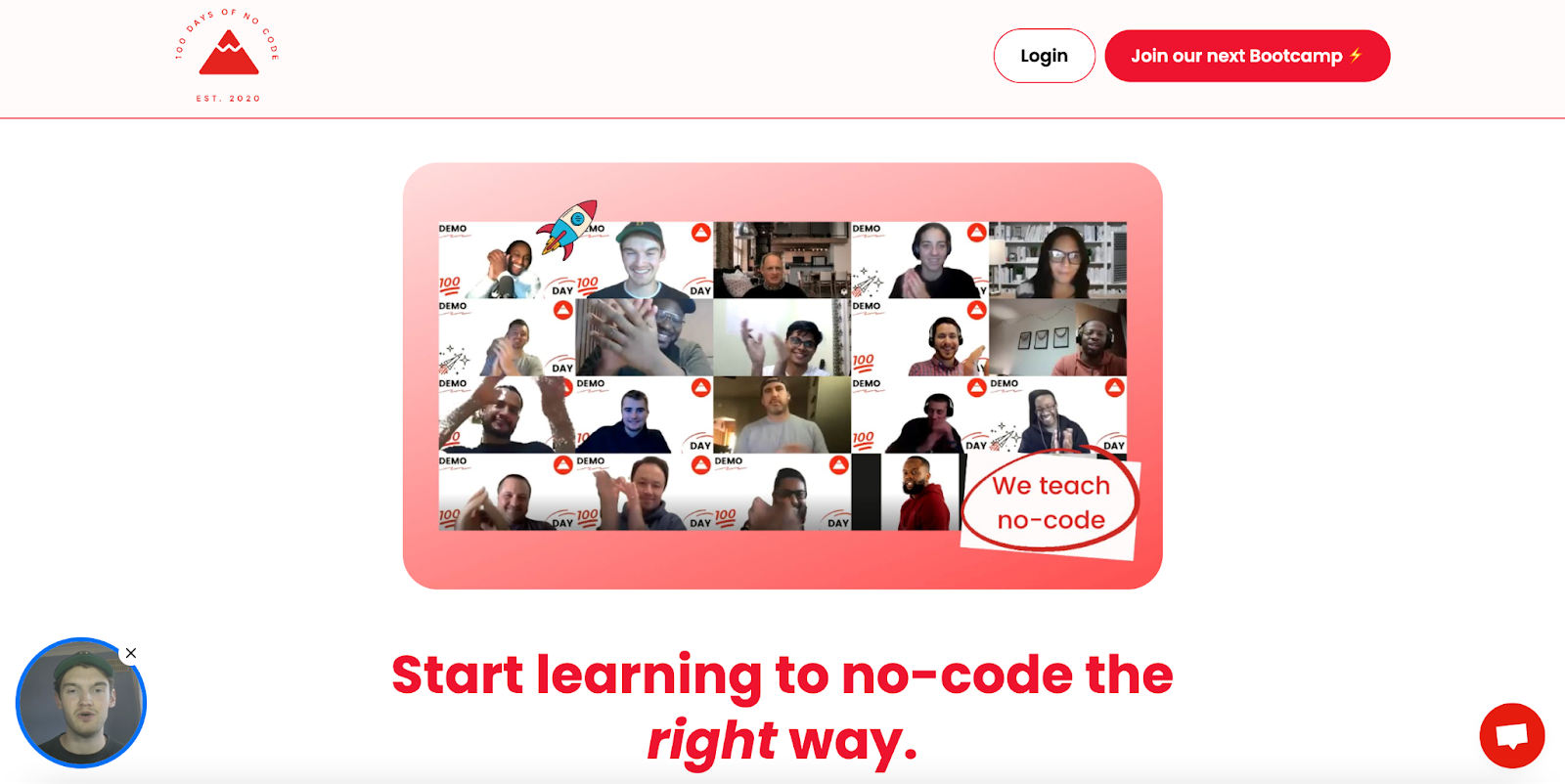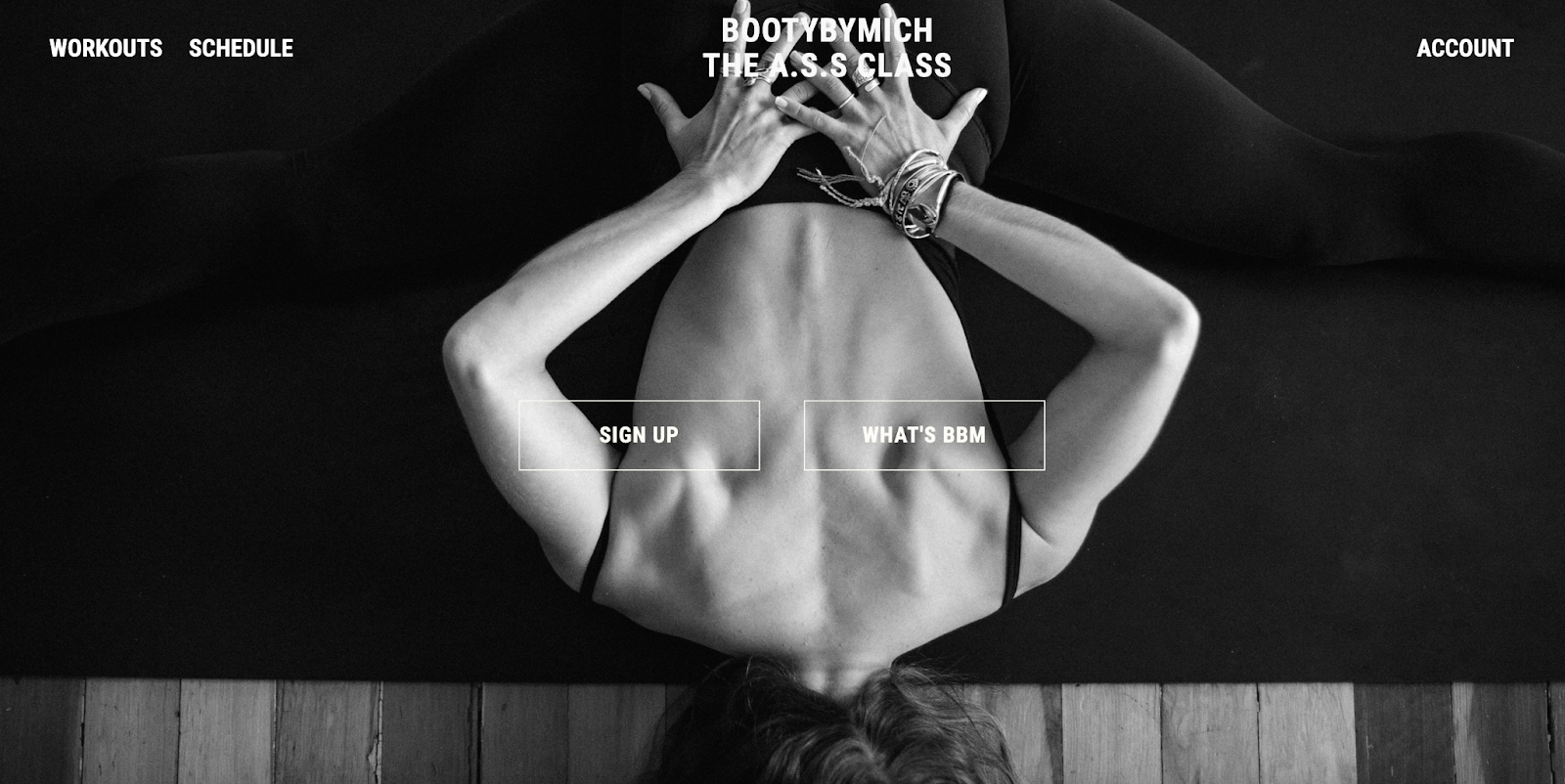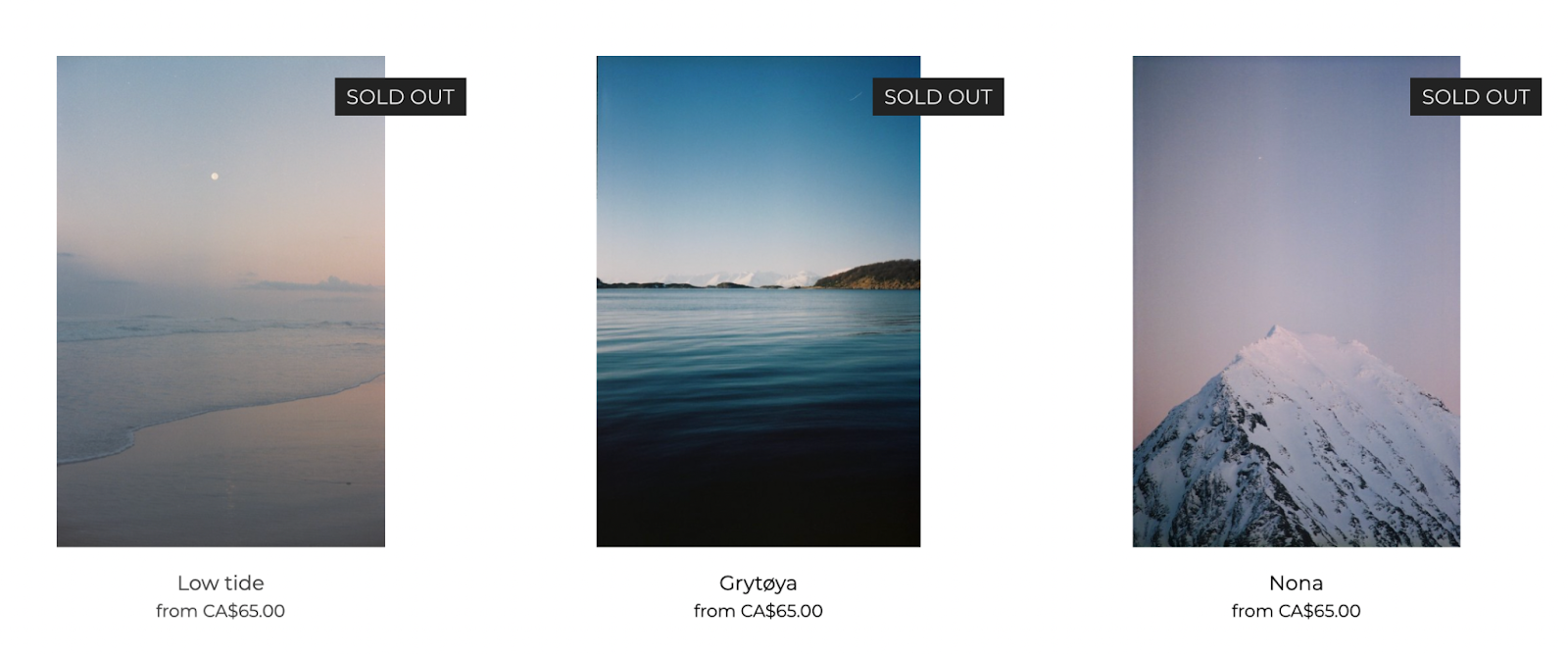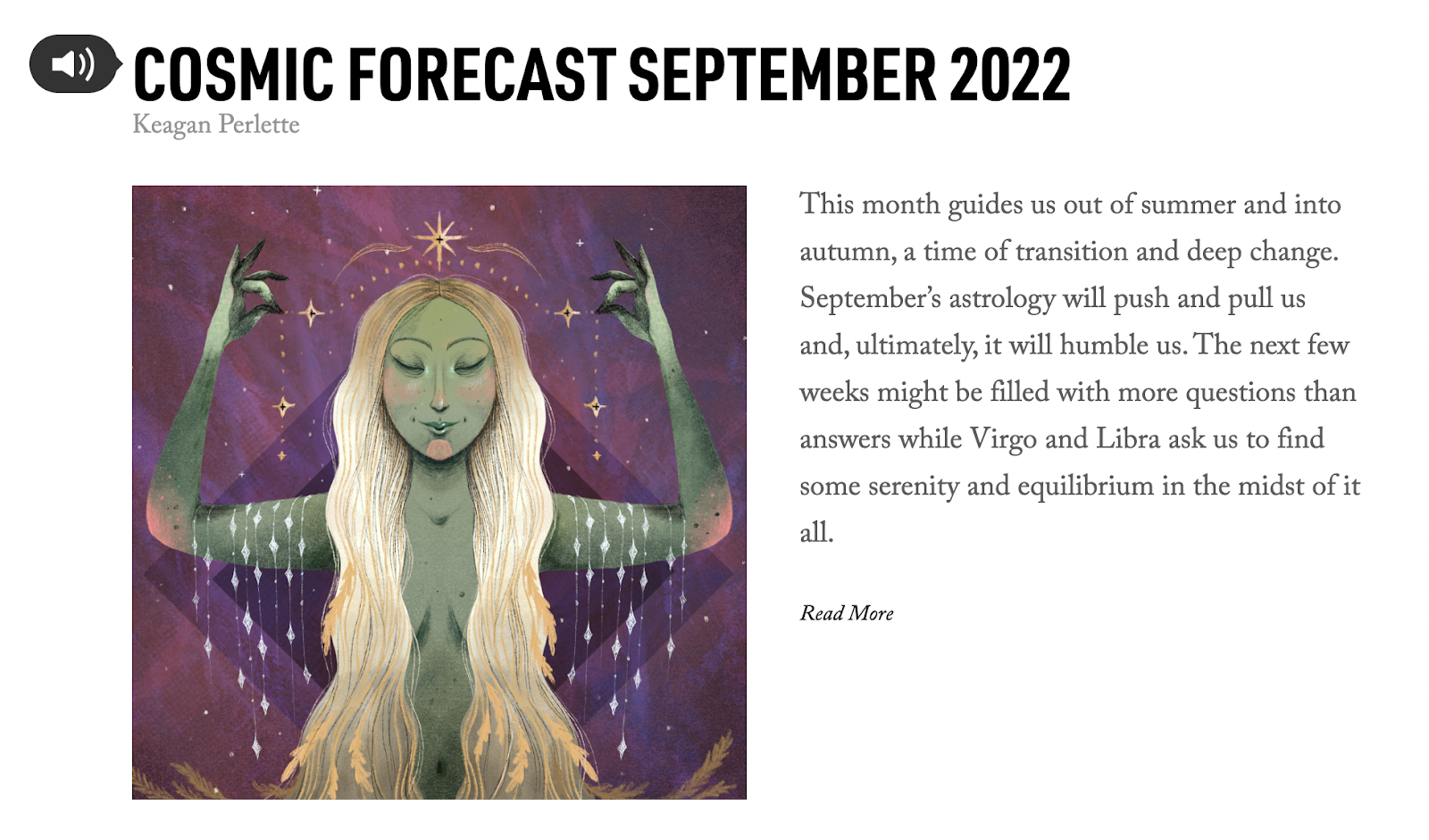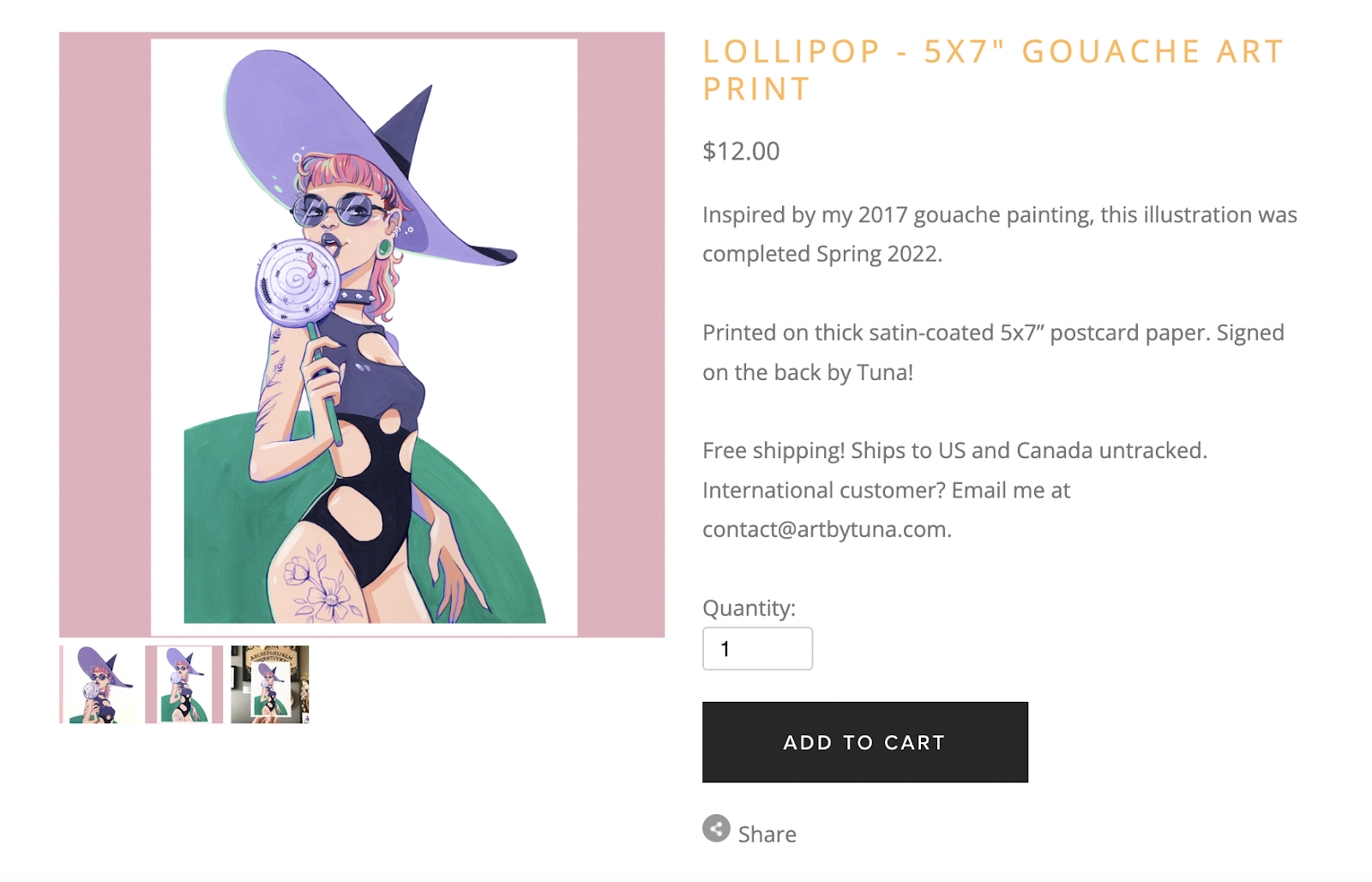58 ideas for digital products to sell in every niche
Table of Contents Jump to:
Jump to:
Table of contents
TL;DR: We’ve put together the best digital product ideas for every niche and industry, and arranged them by ROI to inspire your next big idea.
Digital products are so commonplace nowadays that we all interact with them regularly. We read ebooks, browse web apps, download graphics, and access video tutorials without so much as a second thought.
You might be an online entrepreneur, content creator, or creative interested in building your own digital products… only to discover you’ve already put some together without realizing it.
But it can be hard to come up with new ideas for digital products and determine which would be the most profitable for your niche. You want to avoid feeling like you’re building digital products just for the sake of it or putting out the same kind of content everyone else in your industry does.
That’s why we’ve curated this extensive list of 58 digital product ideas for every niche. Browse through our selection, consider what might work for your business, and get inspired.
Find your perfect plan
See exactly how pricing scales with your audience, and only pay for what you use. No hidden fees, no surprises.
Digital product ideas for small businesses and startups
As of 2022, there are approximately 33.2 million small businesses in the United States, and that number continues to grow. They make up 64% of new jobs year over year and younger demographics, like millennials and Gen Z, are particularly likely to create side hustles.
Small businesses and startups are as diverse as the people who found them. But some profitable digital products can work for almost all of them. Take a look:
- How-to guides: Establishing a small business or startup isn’t an easy feat, and if you’ve done so successfully, you have lots of valuable knowledge to share far and wide. Here are just a few examples of the kinds of digital guides you can put together to share that expertise:
- How you started your small business or startup
- How you secured funding or investments for your small business
- How you made your startup profitable
- How you’re planning to scale your small business or startup
- The marketing strategies you use for your business (this can range from ecommerce marketing strategies to SaaS marketing tactics)
- Templates for project management platforms: Much to the chagrin of some, running a small business involves a lot of paperwork and administrative tasks. If you’ve got a great operational system going with your platform of choice, create a template and share it with other business owners to help them along in their business journeys. Some popular examples include Notion, Excel, and Airtable.
- Business-specific membership sites: Successfully getting a small to medium-sized business (SMB) off the ground requires a community. Build a community of like-minded professionals with a membership site that lets SMB owners network with each other, promote each other, and exchange ideas, and best practices.
100 Days of No Code is an excellent example of a membership site (built with Softr) that brings professionals with a common interest together to create community and learn from each other. They’ve got popular paid memberships as well as a free option.
- Virtual summits, webinars, or roundtables: Another way to build community and share knowledge in that setting is by bringing SMB and startup professionals together in a digital forum. Your virtual summit, webinar, or roundtable can be free or paid depending on your reputation, level of expertise, and personal goals.
- Audio resources or audio files: If you’re comfortable talking about and recording your experiences as an SMB or startup owner, podcast episodes, interviews, or audio lessons can be great digital products to share or sell online.
- Swipe files: Swipe files are flexible—they contain various ideas and pieces of information that can help people get inspired when they’re having a brain block. Some common examples that are relevant to small business owners would be email copy or social media ideas.
- Scripts: Similar to swipe files, scripts tell people what to do or say when they’re confronted with a situation where they don’t know where to begin. For example, scripts can be useful for networking, reaching out to new clients, and making sales calls.
Digital product ideas for bloggers
Similar to small businesses and startups, the variety of bloggers out there is almost limitless. You might be a fashion, wellness, finance, food blogger, or something else altogether. Of course, the best digital products should align with your specific passion and brand, so consider which of the following ideas resonates most with you.
- Do it yourself (DIY instructions): Let’s face it, bloggers know how to do a lot of things by themselves! Whether you’re showing your audience how to make a craft, decorate their home, make a piece of clothing, or build a piece of furniture, make sure it’s valuable to them and easy to execute.
- Fashion or styling tutorials: If you’re a fashion blogger, your audience will love getting your outfit ideas and styling advice. These tutorials can be as simple as blogs or as dynamic as video series.
- Hair and makeup tutorials: Similarly, if you’re a beauty blogger, your following might already be asking for your advice and top tips on hair and makeup. Give them what they want and show them!
- Vlogs: This is especially relevant for bloggers or influencers who’ve built up a following on platforms like Instagram or YouTube. Show your followers snapshots of your life by filming a special vacation, a typical week in your life, a professional event, or a life milestone, like a wedding.
- Product comparisons or reviews: Whether you blog about fashion, travel, or books, you know your industry and you know it well. That positions you perfectly to compare and review different products out there and showcase some of your favorite items.
- Online courses or tutorials related to your niche: If you’ve already published a lot of content relevant to your niche, it might be time to put it all together in an online course or tutorial that people can buy or download. For instance, a vintage fashion blogger might build an online course that teaches viewers how to perfect the art of vintage shopping and build their wardrobe mindfully and sustainably.
- Guides on blogging: If you’re a successful blogger, other bloggers may look up to you and wonder how you got to where you are. To give them some answers, develop a guide that explains things like how to get paid work as a blogger, how to dip your toe into influencer marketing, and how to get sponsorships and paid promotions.
Canadian influencer Nitsan Raiter has over 330K followers and creates content about all things fashion. And she built an online course and guide called Mind Your Business that teaches aspiring bloggers and content creators to do the same.
Digital product ideas for coaches and consultants
There are so many different types of coaches and consultants out there, including health, life, business, and career coaches and personal trainers. Check out how coaches and consultants can sell digital products.
- Recipe books: If you’re a health or wellness coach, you probably advocate for healthy, balanced eating. Share some of your most-loved, tastiest recipes in a book so your clients can enjoy good food with ease.
- Meal planning or prepping guides: Many people struggle to maintain balanced diets due to a lack of time or know-how. Meal planning and prepping guides teach people how they can save time and cook effectively with strategies like batch cooking and stocking their pantry properly.
- Challenges: Challenges work for all kinds of coaches because they’re so adaptable—they just require people to do certain things for a set number of days. Some common examples include 30-day yoga challenges or 30-day meditation challenges, but a marketing coach could also think of something creative like a week-long challenge to come up with a creative product launch email subject line or upsell email ideas every day.
- Workout regimens: Lots of people want to get in better shape but don’t know where to begin. If you’re a personal trainer or fitness coach, share digital products that show exactly the kinds of workouts your clients should be doing to stay fit (you can create a calendar that breaks workouts down by week or day). Workout regimens can be simple written guides with imagery, but videos are particularly effective as people can easily follow them in the comfort of their own homes.
Booty by Mich is a personal trainer and fitness coach who has some great video courses that help people stay fit by doing short workouts every day. She publishes new workouts for people to follow every week and makes a schedule for people to follow from Monday through Sunday.
- Membership sites or online groups related to your niche: All coaches thrive off the communities they build and maintain. Try creating a membership site or simple online group on a platform like Facebook to bring people together and let them support one another.
- Self-care guides: Self-care looks different for everyone, but people often need ideas so they can understand what will work best for them. That’s why self-care guides can be such great digital products.
- Journal prompts: Journaling is a popular form of self-care, but not everyone knows how to start. Life and wellness coaches might benefit from building journal prompts their clients can use to get inspired.
Digital product ideas for travel enthusiasts
Many people love traveling, whether it’s weekend trips in their country or adventurous, long-term backpacking trips in far-flung corners of the world. So, if you’re a travel guide, blogger, or any kind of travel enthusiast, you’ve got a huge market to sell digital products.
- Travel guides: If you’ve traveled extensively, share all the tips and tricks you’ve collected over the years with your audience. You can either make your guides location-specific or general advice.
- Location-specific maps: If you’re familiar with a specific destination, put together a map that indicates some of your favorite spots. That way, your audience will know exactly where the best spots are when they take a trip there.
- Virtual tours: When you travel, take your followers along with you! Create captivating video content or vlogs showcasing the unique sights you see while making your way around the world.
- Travel photography: Many avid travelers are passionate about photography. They love capturing the diversity of the world around them (and being able to take visual representations of their memories back home with them). If you’re a traveler who loves photography, you can sell prints of your work so you can share your impressions far and wide.
Hayden Korte-Moore is a Canadian influencer, content creator, photographer, and pilates teacher who takes beautiful photos of her adventures and travels and sells prints on her website.
- Packing checklists: We all know the struggle of having to pack for a trip and not knowing what to bring. Travel bloggers have to become packing professionals. Why not make fun, engaging checklists for different climates and destinations to help your audience out?
- Paid newsletters: If you’ve built up a decent following as a travel blogger like Wandering Earl or Nomadic Matt, you may be able to monetize your newsletter by sending out exclusive content and giving your readers direct access to you.
- Basic language guides: Although we’ve got tons of tools to help us out with translation nowadays, it’s always useful to know a few key phrases to get by in destinations where few people speak our native language.
Digital product ideas for designers
If you’re a designer or have design experience, there are many different digital products you can create easily. You likely already have experience creating digital products professionally or for clients—now it’s time to make one for yourself. Here are some ideas:
- Wallpapers for computer backgrounds, smartphone lock and home screens, and tablet backgrounds. Most people use some kind of smart device regularly, so there’s high demand for captivating, comforting, or downright beautiful graphics that’ll add a personal touch to everyday technology.
- Templates for any kind of platform you’re familiar with. Designers have the advantage of knowing how to use platforms like Canva, Photoshop, or Illustrator. Create templates that make it easy for other less-experienced designers or users to give these popular platforms a try. Selling Canva templates, for example, is a really lucrative business for many!
- Social media templates. Anyone who has a social media presence may struggle to come up with enough content to post consistently or stand out from the ever-increasing competition. You can help them out by creating graphic templates for social media posts or Instagram stories, for example.
- Printable assets: Who doesn’t love getting organized with aesthetically pleasing images? Put together some digital products like planners, calendars, charts, or trackers that people can easily download and print out.
- Custom fonts: Given the importance of having a rich brand identity, more and more entrepreneurs and businesses are looking for the perfect custom fonts to represent their brand and use across their online presence (rather than just reusing the same old fonts like Arial and Times New Roman over and over). This presents a great opportunity for designers to create custom fonts and sell them on sites like Etsy or Creative Market.
- Icons: Like fonts, there’s quite a bit of demand for custom icons amongst people who are designing websites and want to give the interface a unique touch. And there are tons of places you can sell your icons online, like Iconfinder or Flaticon.
- Backgrounds for videoconferencing platforms like Zoom or Google Meet: American professionals spend as many as eight hours per week in video meetings, and many don’t love putting their homes or other private spaces on display. Designing clean professional backdrops that people can download as digital products is a great solution to that.
- Website themes or website page templates: If you’re a designer who’s passionate about web design, you could build your own custom website themes for common platforms like WordPress and sell or share them as digital products. If you’re not feeling up to creating a theme for a whole website, you could also make individual website and product page templates.
- Animations: Animations aren’t only fun for designers to create, but they can also be highly profitable. Designers can sell them to platforms like Instagram so users can use them as GIFs in their stories or put them on sites like the LottieFiles Marketplace.
Maximillian Piras is a product designer and illustrator from New York City. Above, you can see a few of the captivating illustrations he has created and featured on his website.
Digital product ideas for journals and magazines
Although most people associate journals and magazines with physical products, accessing these kinds of written materials online is becoming increasingly commonplace. Here are a few ways you can leverage your journal or magazine with digital products:
- Digital copies of your magazine or journal: Transforming your physical magazines or journals into digital assets lets you offer them at a lower price point and reach a much wider audience.
- Downloads of academic research, reports, surveys, or articles: Even if you don’t make your entire magazine or journal available as a digital product, you can offer some bonus content as digital products. Vancouver-based SAD Magazine is a great example of a print magazine that offers some interesting digital content.
- Specialized video content related to your journal or magazine: Some possibilities include video reporting, short films, in-depth interviews, and behind-the-scenes content.
Digital product ideas for artists
Artists often spend a lot of time putting their ideas onto physical canvases or sketchbooks, so they might not immediately think about creating digital products out of their work. However, doing so can provide a new outlet for artistic creativity and generate a consistent source of passive income as well.
- Prints of your work: Our first suggestion is one of the most obvious, but it’s also one of the most intuitive and easiest to execute. Selling digital prints of your work lets you share your work with a larger audience and gives people access to your pieces at a less expensive price point (when compared with buying originals). Doing so is also easy with print-on-demand services like Printful or Printify.
Art by Tuna is a Canadian comic artist and illustrator who sells both digital and physical products on her website. Above you can see an example of how she has her shop set up so people can buy prints of her work right on-site.
- Online art classes or video tutorials: Artists build a lot of expertise over the years, whether they specialize in painting, mixed media, sketching, or something different altogether. Providing art classes or video tutorials allows you to share some of that expertise with aspiring artists and other hobbyists around the world. Best of all, online classes are becoming more and more popular.
- Coloring pages or color-by-numbers for adults or children: This digital product idea might seem niche, but lots of artists have successfully created coloring pages or color-by-numbers in their signature style and had great success selling them online, just check out Etsy if you need inspo.
- Patterns: If you’ve got a knack for designing unique, eye-catching patterns, you could make a great business for yourself by selling them online. Once you’ve designed a gorgeous pattern, people can purchase it and transform it into anything from clothing to accessories to wallpaper, or simply keep it digital and use it in digital designs.
Digital product ideas for photographers
Great photographers have a high level of technical knowledge. That means you can make lots of valuable digital products out of your work and share some of your expertise with the world.
- Digital files of some of your best-known or popular photos: You can sell them on your website or use a third-party marketplace like Etsy. And like artists, you could also use a high-quality print-on-demand service so your audience can get your work professionally printed without any work on your end.
- Lightroom, ACR, or other photography presets: If you’re an experienced photographer, you’ve likely got some go-to presets on your platform of choice. Why not share them with your photography community? Ben Sasso is a talented photographer who sells some great presets designed for weddings and portraits, just check out the example above.
- Lightroom Brushes: Lightroom Brushes are a different kind of preset that is used for retouching. They’re in-demand digital products for photographers who do a lot of beauty, fashion, or product photography.
- Photoshop plug-ins: Think of Photoshop plug-ins like website plug-ins—they give photographers advanced features and functionalities within Photoshop, like specific kinds of photo processing and editing, as well as specialized design.
- Guides and ebooks: There are lots of different digital guides and ebooks you might consider putting together as a photographer. Here are some digital content ideas:
- General photography advice or best practices (for beginners or professionals)
- A step-by-step guide on how to create certain kinds of photos or execute a specific photography style
- Advice on how to style or pose photography subjects in-studio
- Information on the kind of photography gear photographers of different levels should invest in
- Selling your images as stock photos: There’s a high demand for stock photos nowadays, as people need them to jazz up their websites, blog posts, and other digital spaces. Internet users have also become more discerning—they’re not as satisfied with the same old cheesy, static stock photos as they used to be. That’s why it can be a great source of income for talented photographers to license their images and sell them on platforms like Shutterstock, Alamy, or 500px.
- Textures: If you’re a texture-obsessed photographer, try selling some of your favorites so other photographers and creatives can use them to add something special to their imagery. Some popular options include analog, wood, vintage, and paper/parchment.
Read next: Email marketing can be a valuable tool for photographers. Read our article to discover how to take your email marketing strategy up a notch and build your email list.
Start sending emails people love to get
Flodesk’s affordable, transparent pricing puts small business owners first—always.
Digital product ideas for writers
Similar to artists, many writers might not initially give selling digital products a lot of thought. They’re more often focused on getting their thoughts down onto paper (or into a Word document) and tackling obstacles like the dreaded writer’s block.
However, writers have tons of opportunities to turn their written work into unique, valuable digital products (which can also help them solidify their digital identity and online presence). Here are just a few ideas:
- Digital versions of your writing: Whether you write novels, short stories, or books of poetry, you can absolutely sell digital copies of your work online. Since readers are increasingly turning to devices like Kindles to dive into their favorite stories, there’s a demand for digital written content. This is also a great option for writers who don’t have an agent or haven’t gone through the typical hardcover publishing route.
- Unreleased content like deleted chapters, spin-offs, or writer notes: If you’ve already built up an engaged following as a writer, your audience might want more content that’s related to the work you’ve already put out there.
- Audio content: Similar to the advent of Kindles and other e-reading devices, audiobooks, and other audio content are taking off in a big way. Audiobook revenue is projected to grow 24.4% every year between 2020 and 2027. However, you don’t have to limit yourself to just audiobooks. Some other great audio digital product ideas for writers include recorded interviews, podcast episodes, or even radio broadcasts.
- Digital guides for other writers: Being a writer is hard, so you’ve likely accumulated lots of knowledge throughout your professional life that other writers (aspiring or professional) could benefit from. Try creating an ebook or guide full of:
- Your best writing tips
- A breakdown of your writing routine
- An explanation of how you deal with common writer issues like writer’s block
- Guidance on how someone could go about writing their first short story or novel
- How you self-published your novel
- How you got a writing agent
- How to become a freelance writer
Pro tip: Don’t neglect your sales page. Use powerful sales page and checkout builders like Flodesk Checkout to build your ebook landing page.
- Paid workshops, webinars, or masterclasses: You can also share the knowledge you’ve gained as a professional writer in a more structured, formal format: online courses. While they take a lot of time and effort to put together, they can be one of the most profitable digital product ideas as people will pay for great online workshops and you can reuse the same or similar content again and again for new audiences.
- Video content related to writing: Writing is a relatively solitary profession, so many people are interested in finding out more about what goes on behind the scenes. And video content is more popular than ever, and that’s not going to change anytime soon. In fact, Cisco predicts that 82% of global internet traffic in 2022 will come from video streaming or downloads. Try making videos showing “a day in the life of a writer” or doing a live FAQ session with your audience.
Corey Croft of Fly Pelican Press is a writer based out of Vancouver who posts writing videos on his Instagram page regularly. He has a word of the day series where he reflects on various words, ranging from slang to sophisticated, and what he thinks about their usage and meaning in life and literature.
- Social media graphics or smartphone backgrounds: We know, you’re a writer, not a designer. Nevertheless, putting an aesthetic spin on some quotes from your writing and making them into graphics for social media or even phone backgrounds can be a great way to get your words into the digital world.
Start creating and selling your digital products
Beginning the process of putting together your digital products can be daunting, but it doesn’t have to be. And when you do so successfully, you’ll have yet another way to generate income for your business, express yourself creatively, communicate with your audience, and reinforce your branding to boot.
We hope that at least one of the digital product ideas we included in our list resonated with you, and we can’t wait to see what you come up with and how it enriches what your business has to offer.
